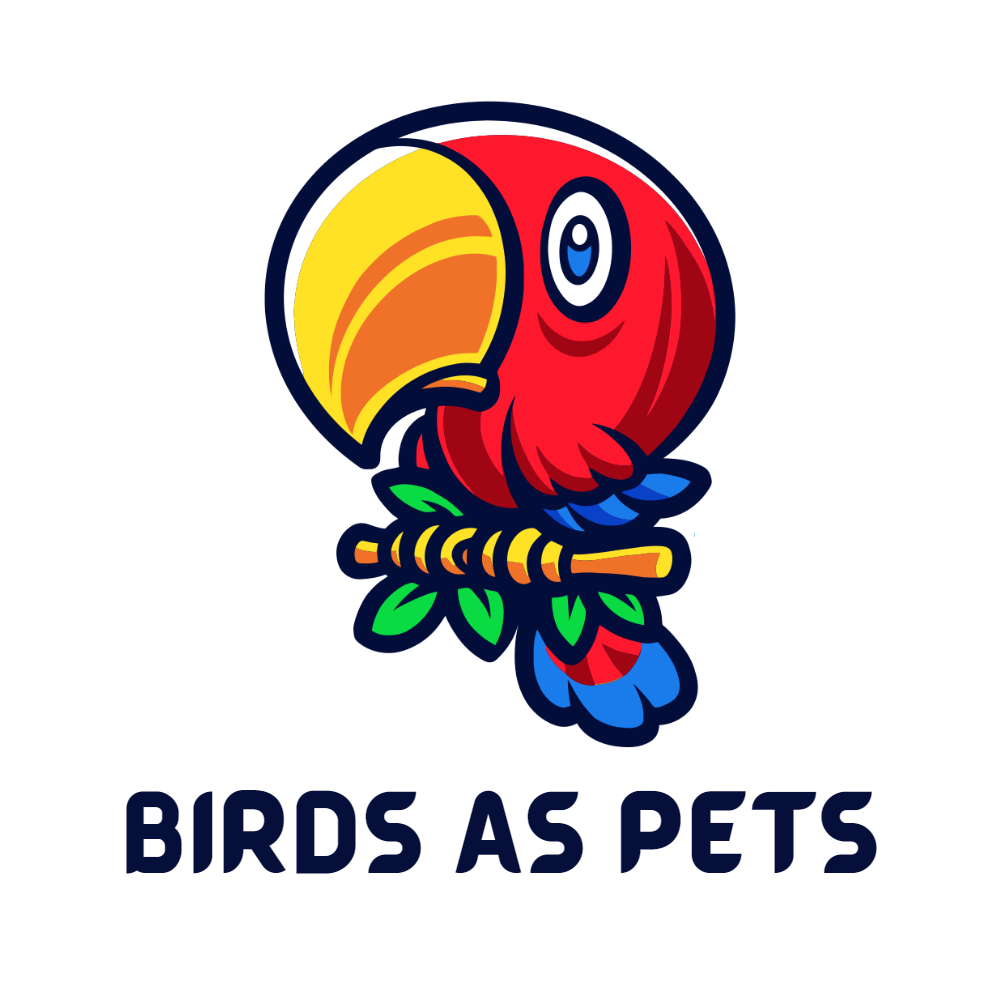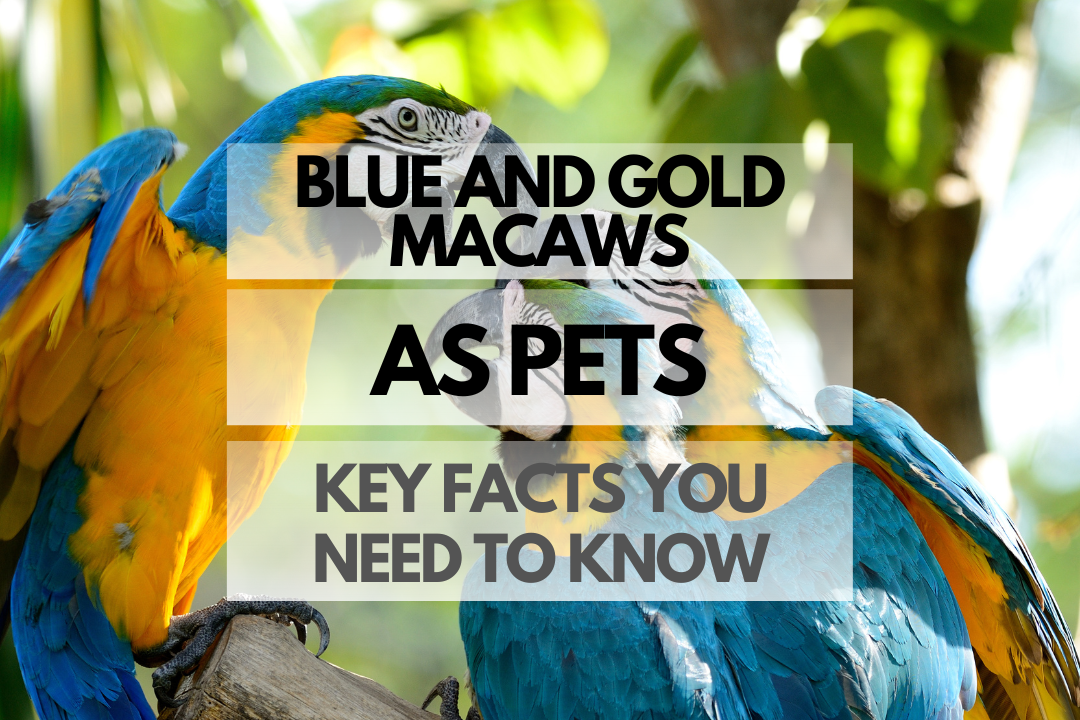Blue and Gold Macaws are large, vibrant, and intelligent birds that can make wonderful pets for the right owner. In this article, we’ll explore everything you need to know about keeping a Blue and Gold Macaw as a pet, including their natural habitat, lifespan, care requirements, and more.
Quick Reference Table: Blue and Gold Macaws Facts
| Fact | Detail |
|---|---|
| Scientific Name | Ara ararauna |
| Size | 30-36 inches (76-91 cm) in length |
| Weight | 2-3 pounds (900-1300 grams) |
| Lifespan | 30-50 years |
| Temperament | Affectionate, intelligent, and social |
| Talking Ability | Good, can learn numerous words and phrases |
Where Do Wild Blue and Gold Macaws Live?
Wild Blue and Gold Macaws are native to South America, where they inhabit tropical and subtropical rainforests, savannas, and swamps. Their range extends from Panama through Colombia, Ecuador, Peru, Brazil, and Bolivia. These colorful birds are social by nature and can often be found in large flocks in the wild.
Blue and Gold Macaws Lifespan: How Long Do They Live as Pets?
Blue and Gold Macaws have a long lifespan, typically living between 30 and 50 years as pets. However, some individuals have been known to live even longer with proper care. This long lifespan means that owning a Blue and Gold Macaw is a significant time commitment, and potential owners should be prepared for a lifelong relationship with their feathered friend.
Are Blue and Gold Macaws Good Pets?
Blue and Gold Macaws can make excellent pets for the right owner. They are intelligent, affectionate, and social birds that enjoy interacting with their human family members. They can also be quite entertaining, thanks to their playful nature and ability to learn tricks and mimic human speech. However, they also require a significant amount of attention, space, and care, so potential owners should be prepared for the responsibility that comes with a pet macaw.
Are Blue and Gold Macaws as Pets Good for Beginners?
While Blue and Gold Macaws are wonderful pets, they may not be the best choice for first-time bird owners. Their large size, long lifespan, and demanding care requirements can be overwhelming for someone new to the world of parrots. For those interested in a macaw but new to bird ownership, it may be wise to start with a smaller, more manageable species before moving on to a larger bird like the Blue and Gold Macaw.
Are Blue and Gold Macaws Easy to Care For?
Blue and Gold Macaws require a significant amount of care, including a spacious cage, a varied and balanced diet, and plenty of mental and physical stimulation. They also need regular social interaction with their human family members, as well as routine veterinary check-ups to maintain their health. While caring for a Blue and Gold Macaw can be a rewarding experience, it’s essential to be prepared for the time, effort, and financial commitment involved in their care.
Blue and Gold Macaws Pros and Cons
| Pros | Cons |
|---|---|
| Intelligent and trainable | Require a lot of space |
| Affectionate and social | Can be loud and noisy |
| Beautiful and charismatic | Long lifespan requires a significant time commitment |
| Good talking ability | Expensive to care for |
Blue and Gold Macaw Price and Costs
Blueand Gold Macaws can be quite expensive, with prices ranging from $2,000 to $4,000 depending on factors like age, health, and genetics. In addition to the cost of the bird itself, initial setup costs can be significant. A large, high-quality cage and play area, toys, perches, and feeding supplies can add up quickly. Ongoing expenses include a varied diet of fresh fruits, vegetables, and pellets, as well as regular veterinary care and potential grooming costs.
Where to Buy Blue and Gold Macaws
When looking to purchase a Blue and Gold Macaw, it’s essential to find a reputable breeder or rescue organization. Research potential sellers thoroughly and ask for references, as well as visiting their facility if possible. This will help ensure that you’re getting a healthy, well-socialized bird that has been raised in a loving and responsible environment. Another option is to adopt a macaw from a rescue organization or sanctuary, as many birds are in need of a loving, forever home.
Caring for Blue and Gold Macaws
Proper care for a Blue and Gold Macaw involves providing a spacious and safe living environment, a balanced and varied diet, and plenty of mental and physical stimulation to keep them healthy and happy.
Blue and Gold Macaw Food
A healthy diet for a Blue and Gold Macaw should consist of a combination of high-quality pellets, fresh fruits, and vegetables. Nuts and seeds can also be offered in moderation as a treat. It’s essential to provide a varied diet to ensure that all their nutritional needs are met. Be sure to avoid any toxic or unhealthy foods, such as chocolate, avocado, and foods high in salt or sugar.
Health and Common Issues
Blue and Gold Macaws can be prone to certain health issues, such as feather plucking, respiratory infections, and beak and feather disease. Regular veterinary check-ups can help catch these issues early and ensure your macaw remains in good health. Maintaining a clean living environment and providing a healthy diet and proper mental stimulation can also help prevent many common health problems.
Signs of Healthy Blue and Gold Macaws
| Healthy Blue and Gold Macaw | Sick Blue and Gold Macaw |
|---|---|
| Bright, clear eyes | Cloudy, swollen, or watery eyes |
| Smooth, colorful feathers | Ruffled, dull, or plucked feathers |
| Active and alert | Lethargic or unresponsive |
| Regular, healthy droppings | Abnormal, discolored, or irregular droppings |
| Normal appetite and weight | Loss of appetite or weight loss |
Blue and Gold Macaws Pet Insurance
Just like any other member of your family, Blue and Gold Macaws deserve the best care possible, which is why pet insurance is a great idea! Pet insurance can help you cover unexpected veterinary expenses, giving you peace of mind when it comes to your feathered friend’s well-being. Some pet insurance companies even offer coverage specifically tailored to exotic pets like macaws, so make sure to do your research and find the best policy for your unique situation.
Personality and Behavior
Blue and Gold Macaws are known for their striking appearance, intelligence, and playful demeanor. These beautiful birds are highly social creatures, which means they love to interact with their human companions. They are curious, attentive, and can be quite entertaining, often imitating sounds and gestures they observe. However, they can also be quite loud and boisterous, so keep this in mind when considering one as a pet.
Are Blue and Gold Macaws Social?
Absolutely! Blue and Gold Macaws thrive on social interaction, both with other birds and their human caretakers. They form strong bonds with their owners and appreciate plenty of attention. Regular interaction and playtime are essential for their emotional well-being, so make sure to set aside time each day to spend with your macaw.
Speech and Noise of Blue and Gold Macaws
One of the most fascinating traits of Blue and Gold Macaws is their ability to mimic speech and other sounds. With proper training, these intelligent birds can learn a surprising number of words and phrases. However, they can also be quite noisy, producing loud squawks and screams that might not be suitable for all living situations. It’s essential to be aware of their vocal nature and to provide proper mental stimulation to minimize excessive noise.
Similar Species to Blue and Gold Macaws
There are several other macaw species that are similar in appearance and temperament to Blue and Gold Macaws. Some of these include the Scarlet Macaw, Green-winged Macaw, and the Hyacinth Macaw. Each species has its unique traits and care requirements, so be sure to research thoroughly before deciding which is the best fit for your home.
Can Blue and Gold Macaws Live With Other Pets and Birds?
While Blue and Gold Macaws can often coexist peacefully with other birds, it’s essential to monitor their interactions closely. Due to their size and strength, they may unintentionally harm smaller birds during play. As for other pets, such as dogs and cats, it’s crucial to ensure that they are properly introduced and supervised to prevent any accidents or injuries.
Are Blue and Gold Macaws Legal to Have as Pets?
In most countries, including the United States, it is legal to own a Blue and Gold Macaw as a pet. However, it’s essential to check your local and state regulations, as there may be specific permits or restrictions on owning exotic pets. Always make sure to purchase your macaw from a reputable breeder or rescue organization to ensure it was acquired legally and ethically.
Additional Resources
- Parrots For Dummies by Nikki Moustaki
- Reddit Parrots Community
- Facebook Macaw Lovers Group
- Scientific Article: Personality Traits in Companion Birds
FAQ for Blue and Gold Macaws as Pets
Do Blue and Gold Macaws talk?
Yes, Blue and Gold Macaws can talk and mimic sounds with proper training. They are intelligent birds capable of learning a variety of words and phrases.
Are Blue and Gold Macaws suitable for families with young kids?
While Blue and Gold Macaws can be loving and gentle pets, they may not be the best choice for families with young children due to their size, strength, and potential for loud vocalizations. However, with proper supervision and training, they can still make excellent family pets.
Can Blue and Gold Macaws be trained?
Yes, these intelligent and social birds can be trained to perform tricks, talk, and even learn basic commands. Consistency, patience, and positive reinforcement are key when traininga macaw.
How do I know what gender Blue and Gold Macaws are?
It can be challenging to determine the gender of a Blue and Gold Macaw just by looking at them, as both males and females have similar appearances. The most reliable way to determine their sex is through DNA testing, which can be done by collecting a blood or feather sample and sending it to a specialized laboratory.
What is the lifespan of Blue and Gold Macaws?
Blue and Gold Macaws have a long lifespan, often living between 30 and 50 years in captivity with proper care. This makes them a long-term commitment, so be prepared for a lifetime of companionship with your feathered friend.
What should I feed my Blue and Gold Macaw?
A well-balanced diet is essential for a healthy macaw. Their diet should consist primarily of high-quality pellets formulated for large parrots, supplemented with a variety of fresh fruits, vegetables, and nuts. Avoid feeding your macaw a seed-only diet, as it can lead to nutritional deficiencies.

